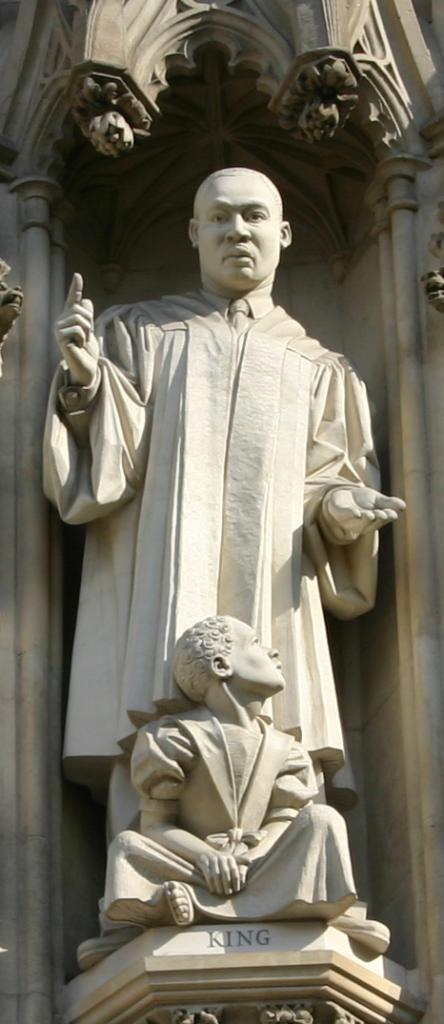
(Wikimedia Commons public domain image)
There is no better way to think of Martin Luther King today than to listen to his own incomparable voice, which, if you choose, you can do here:
“5 of Martin Luther King Jr.’s most memorable speeches”
His speech at the Lincoln Memorial on the Washington Mall, commonly called “I Have a Dream” because of its rhythmic repetition of that line, is generally reckoned his greatest. I had not realized, though, that that line was ad libbed, thanks to a prompt from the great Mahalia Jackson:
“The one thing about Martin Luther King Jr.’s greatness everyone keeps missing”
The article above pays tribute to Dr. King for his capacity and willingness to listen, which is a valuable but relatively uncommon leadership ability. Please note especially, though, the brief but remarkable anecdote about his listening to God.
I’m not sure that I would call it the greatest more-or-less political speech in American history — Lincoln’s remarks at Gettysburg, for example, still astonish me as a miracle of concise eloquence — but it certainly ranks among the very greatest:
“Indiana AG Curtis Hill: On Dr. King’s birthday be inspired by the greatest speech in US history”
See also “Martin Luther King and I: Reflections on a holiday that might be better celebrated in late August.”
The “I Have a Dream Speech” is, to say the very least of it, a marvelous piece of rhetoric. But I’m also impressed by the uncanny prescience, at least from our subsequent perspective, of Dr. King’s final speech, given on 3 April 1968, the night before his assassination, in Memphis, Tennessee:
“Well, I don’t know what will happen now. We’ve got some difficult days ahead. But it really doesn’t matter with me now, because I’ve been to the mountaintop. And I don’t mind. Like anybody, I would like to live a long life. Longevity has its place. But I’m not concerned about that now. I just want to do God’s will. And he’s allowed me to go up to the mountain. And I’ve looked over, and I’ve seen the Promised Land. I may not get there with you. But I want you to know tonight that we, as a people, will get to the Promised Land. So I’m happy tonight. I’m not worried about anything. I’m not fearing any man. ‘Mine eyes have seen the glory of the coming of the Lord.’” (My transcription from the video excerpt of the speech given at the first link above.)
I’m very old. I was fully awake and alive in 1968. Some of you were, as well. Many of you were not. In either case, perhaps you will profit from hearing Senator Robert F. Kennedy’s announcement of Dr. King’s assassination in Indianapolis, at what had been planned as a campaign rally:
“Robert F Kennedy Announcing The Death Of Martin Luther King – A Great Speech”
Sixty-three days later — less than five years after the assassination of his brother, President John F. Kennedy — Senator Kennedy himself was shot to death in Los Angeles, after having just won the California Democratic presidential primary.
It was a difficult, discouraging, troubling period in American history.











